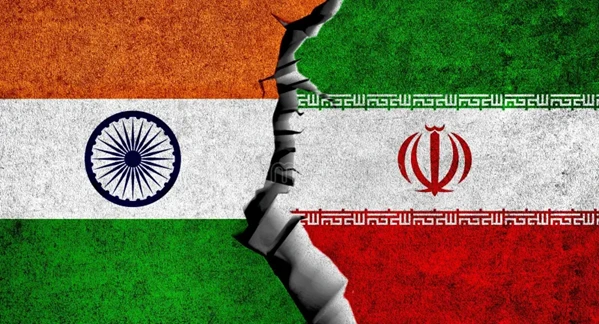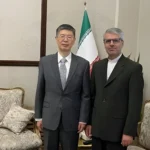India and Iran have always been presented as having a strategic partnership and they have always been claiming to have collaborated in many areas. What has happened in the recent past has brought to light the real face of this alliance as it turned out that whatever India might have been doing under the said alliance was not as a result of a genuine and close friendship, but was part of a larger and more calculated geopolitical game. India remains silent and has performed secret activities in the Israel-Iran conflict, betraying Tehran as well as showing indecisive foreign policy of India.
The move of India to participate in Chabahar was highly promoted as a great move of support in economic and security interests of Tehran. But Iran faced the actual geopolitical crisis, and the behavior of India demonstrated that all its statements about friendship and collaboration were nothing more than words. When Israel attacked Iran using military forces, India did not say a word, and it did not publicly express its backing of Tehran in spite of their close relationship that goes back a long way. This diplomatic silence was not only an idle position, but rather a clear indication of the real geopolitical interests of India. Refraining against any condemnation of Israeli attacks made it clear that India shifted its diplomatic allegiance towards Tel Aviv, rather than Tehran.
Since India refused to criticize the Israeli attacks on Iran, this was an important turning point in their diplomacies. It became a significant shift in the values that once characterized their interaction with Tehran. This was a stark contradiction to a nation that had been adopting a non-aligned stance and a balance to Western influence long enough. It was also a very big blow to the credibility of India in the Muslim world who interpreted the lack of solidarity to another regional power like Iran as a political betrayal.
What even added to the situation further were reports that Indian intelligence agency RAW had been connected with Israeli counterpart agency Mossad to toil against the interests of Iran. The working relationship of India and Israel was a form of betrayal to Iran. When Tehran was in need, India seemed to be going out of the way to support Israel at the cost of the security and sovereignty of Iran. These secret efforts gave an ugly image of how India was really handling its relations with Iran; that it focused on its strategic interests above any consideration of loyalty or real relationship.
The security agencies in Iran tracked Indian espionage activity, which supposedly enabled Israel to attack high-value Iranian targets. The Indian-Israeli cooperation also revealed India as a two-faced nation in the way it conducts foreign policies that were not trustworthy. This was more than just a betrayal of a so-called partner by Iran; it was also a direct challenge on its sovereignty and security. These activities have made Iran question its relations with India realizing that India had more to do with its geopolitical goals than with interest in stability in the region.
The fact that India covertly tried to destabilize Iran proves the kind of diplomacy that they play in the region. This is a transactional type of diplomacy that is not based on alliance of principles but on strategic self-interest. The foreign policy approach that India has followed has been criticized at many instances as inconsistent and opportunistic and the present episode with Iran goes on to justify this criticism further. India has created an appearance of partnerships out of common values or mutual respect but the facts indicate instead that its relationships are defined by pragmatic interests and self-relating strategic interests.
In the international arena, Indian role in Iran-Israel crisis was very conspicuously missing. Even though it has labelled itself as a regional power and an emerging global power, at G7 discussions on the matter India played no major role and did not even have a say. Such ineffectiveness revealed India as the country with a low position on the map of international politicians. When the rest of the world was conducting important negotiations regarding the crisis, India again could not leave a mark and this reiterated the fact that India was not able to handle complicated geopolitical issues successfully.
The fact is that the Indian foreign politics is not guided on the principles of loyalty, trust or solidarity but it tracks its own national interests and finds them in the pragmatic way. Such hypocrisy has haunted India in its relations with Iran and has continued to dent India as a reliable partner in the region. Its activities have proven that it cannot be trusted by Iran as well as by every nation that respects and practices sovereignty, loyalty and real cooperation.
This fake friendship between India and Iran is now seen to be empty and lies on the platform of opportunity and lack of respect. With Iran reconsidering its ties with India, it will be important to spot the fact that India indeed has a strategic self-interest and that its international relations are not fixed, rather worthy of a change with the shifting conditions of regional and global power structures.








